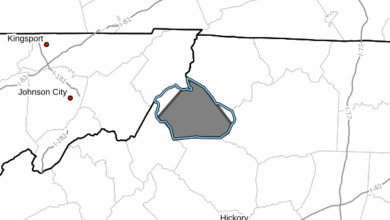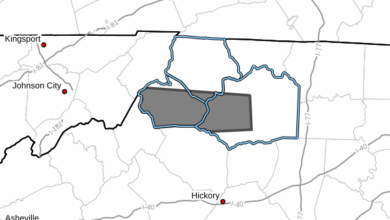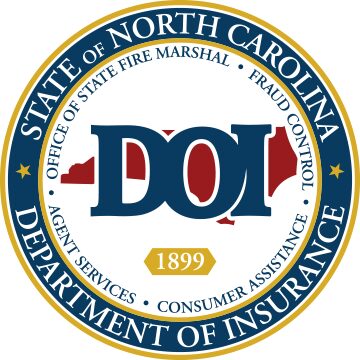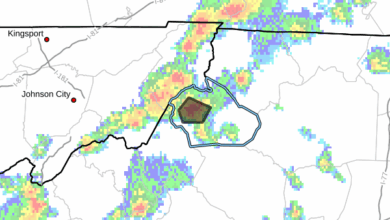Last Updated on February 17, 2023 9:22 am
On Saturday, October 13th, the Watauga County Sheriff's Office and Watauga Substance Abuse Prevention (WSAP – wsap.org) coalition are partnering together for an Operation Medicine Cabinet Take Back Event. It will take place from 10:00 AM until 2:00 PM at the following 4 locations:
- Food Lion, Boone (Blowing Rock Road)
- Food Lion, Deep Gap (Hwy. 421)
- Food Lion, Blowing Rock
- Foscoe Fire Department
Please help us keep pharmaceuticals and controlled substances off the streets and out of our rivers! Turn in your unused or expired prescriptions, over-the-counter medications, and medical supplies (this includes syringes and needles, as long as they are capped) – no questions asked. For questions or more information please call the Watauga County Sheriff's Office at 828-264-3761. You can also dispose of your unused and unwanted medication at any of the six, permanent, anonymous drop box locations across Watauga County. These locations accept prescription and over the counter medications but not syringes and needles (sharps):
Appalachian State University Police Department
461 River Street, Suite B, Boone, NC 28607
Phone: 828-262-2150
Hours: 7 days a week, 24 hours a day
Blowing Rock Police Department
143 Park Ave, Blowing Rock, NC 28605, USA
Phone: 828-295-5210
Open 24/7 (Outside), Office is M-F 8-5pm
Boone Drug at Deerfield
345 Deerfield Rd, Boone, NC 28607, USA
Phone: 828-264-3055
Hours: Monday – Saturday: 8a-9p, Sun 12:30p-6p
Boone Drug at New Market
245 New Market Centre, Boone, NC 28607, USA
Phone: 828-264-9144
Hours: Mon-Sat 9a-7p, Closed Sunday
Boone Police Department
1500 Blowing Rock Rd, Boone, NC 28607, USA
Phone: 828-268-6900
Hours: M-F 8-5pm, Lobby Open 24/7
Watauga County Sheriff's Office
184 Hodges Gap Rd, Boone, NC 28607, USA
Phone: 828-264-3761
Monday – Friday: 8:00 a.m. – 5 p.m.
More on Watauga County
AppHealthCare conducts the Community Health Assessment every three to four years. The number one health priority in Watauga County during this most recent assessment period is substance use and misuse prevention. In 2016, an estimated 5 individuals died every day for drug overdose in North Carolina. This is a drastic increase from 363 in 1999 to 1,851 in 2016, a 410% change over the last 17 years. Across Watauga County, the percent of unintentional overdose deaths between 2012 to 2016 was 11% compared to North Carolina’s rate of 12.2%. Part of the challenge is the amount of opioid pills being dispensed per person in Watauga County: 50.2 pills dispensed per person in 2016. Although lower in comparison to the 66.5 pills per North Carolina resident, this is still a significant number.
AppHealthCare recently launched SaveALifeNC.com, a website that connects visitors to key resources and shares critical knowledge including a video demonstrating how to use naloxone, the life saving opioid overdose reversal medication. The purpose of the website and broader campaign is to increase awareness of the risks of opioid poisoning, signs and symptoms of an opioid overdose, where to access, and how to administer naloxone in the event of an overdose. This campaign is aimed at reaching individuals with an opioid use disorder and their networks. It is a consolidated place to learn about resources to foster connection to treatment.
What else can you do to be a part of the solution?
- We all must do our part to combat the opioid crisis.
- Visit savealifenc.com to learn about how to get and administer naloxone in the event of a loved one's overdose.
- Help decrease stigma by letting people know that addiction is a chronic disease. Reach out to family members or friends who feel isolated and are struggling. Remember that sharing your own personal story of how addiction has impacted you can be very powerful.
- Talk with your children and teens about the risks of using substances, including opioids.
- Unsecured and improperly disposed of medications are the number one source of access for children, teens, pets, and those seeking to misuse or divert. When medication falls into the wrong hands, those you love can become victim to harm, overdose, and even death by misuse or accidental ingestion.

















